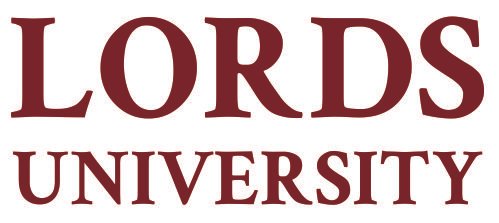How to become a physiotherapist in India?
Being in the medical field is not just a profession, it is regarded as a sacred calling. Doctors and medical professionals are the most respected professions in the world, owing to their nature of preserving and enhancing human life. However, the condition of our medical industry in India is not one of the best. Post-covid, government expenditure has increased from 1.2-1.4% to 1.6- 2.2% of the GDP. The average revenue per capita increased in FY 2021-2024, but still, the condition of our medical industry needs proper attention and a well-planned strategy.
According to ICRA, a report on the outlook for the Indian hospital industry. It is projected that there will be a rise in building capacity and occupancy by private hospitals. Overall, there will be an additional 30,000 beds in the next 4–5 years. And, if we talk about physiotherapy, it comes under Allied and health professionals, Ministry of Health and Family Welfare. India has only 0.59 physiotherapists for every 10000. There is a great need for physiotherapists in India.
What is physiotherapy?
Physiotherapy is the science of movements. It helps the body restore its proper functioning. If you suffer from chronic pain, or you have an injury that is hindering your daily life, you must visit a physiotherapist. Physiotherapists work towards not just rehabilitation but also prevention of injuries. It is mostly pain such as neck pain, back pain, and problems with bones, joints, and ligaments. Once you go to a physiotherapist, the first step that they accomplish is to find out about your medical history. They thoroughly assess your injury and diagnose its problems, and a treatment plan is made for you.
How to become a physiotherapist in India?
If you are considering doing a physiotherapy course, you need to have cleared your 12th with physics, chemistry, and biology. Entry into physiotherapy is through an all-India- entrance examination that is conducted once every year. Further, there is a 4-year physiotherapy programme known as BPT (Bachelor of Physiotherapy) that you need to enroll in. Students can also enroll in a master’s programme, MPT, that can only be pursued after clearing an exam called CET, a common entrance examination. The exam is conducted state-wise, even private universities conduct this exam. Later, they can choose to specialize in subjects such as pediatrics, sports, neurology, Orthopedics, cardiovascular and more.
Career options after physiotherapy
After a degree in physiotherapy, you have various options like Physiotherapist, Physiotherapy researcher, Sports Physio Rehabilitator, Home Care Physiotherapist, Therapy Manager, Geriatric care, Pediatric, Neurologic rehabilitation etc.
Clinical Practice: You can work as a physiotherapist in hospitals, clinics, rehabilitation centers, or private practices, providing direct patient care. In clinical practice, physiotherapists utilize their expertise to diagnose and treat a wide range of medical conditions. They create treatment plans such as manual therapy and exercise prescriptions and improve the overall life of patients.
Sports Rehabilitation: It is a field of physiotherapy where you can choose to specialize in working with athletes.With so many different sports in India, there are a lot of opportunities for people who would like to become a part of sports rehabilitation and make a career in it.They play important roles in taking interventions for sports athletes throughout their careers and help them to achieve their fitness goals.
Geriatric Care: Focus on providing physiotherapy services to elderly patients, helping them maintain mobility, independence, and quality of life. Their job is to assess the functional abilities of the elders, those who experience limited mobility due to medical conditions such as arthritis, osteoporosis, or joint replacements. Overall, they manage their pain and allow long-term planning for their elderly patients.
Pediatrics: Practitioners work with children with developmental delays, disabilities, or injuries, helping them improve motor skills and physical function. They address the special needs of children with developmental delays and injuries and work on enhancing their motor skills and physical function. Through compassionate care and family-centered individual abilities and goals.
Orthopedics: This branch of physiotherapy specializes in conditions related to muscles such as pains in joints, sprains or a fracture.These require skills that ranges from mild to acute pains in patients.They have to come up multidisciplinary approaches to treat their patients.Along with physical treatments, physiotherapists sometimes have to also help their patients come out of mental trauma they are facing that may be hindering their treatment.
Neurological Rehabilitation: Neurological rehabilitation branch deals with severe and chronic neurological conditions such as spinal injury, multiple sclerosis movement and more.The physiotherapists are supposed to employ methods such as spasticity and other such interventions.They help patients to achieve independence and help them increase their participation in daily activities.
A student may also choose entrepreneurship and open his/her physiotherapy clinic and consultancy, offering services and innovative treatment approaches. These are just a few of the examples where the field of physiotherapy offers diverse opportunities for specialization and career advancement based on your interests and skills.
How much do physiotherapists make in India?
According to Indeed.com, the salary range for graduates of physiotherapists at entry-level positions ranges from 2.4-4 LPA, and further, at the mid-level positions, it is 4 - 6 LPA. The senior-level profile makes physiotherapist makes around 6- 10 LPA.profiles
Overall, the prospects of physiotherapists in this aging population, who are also now aware of the importance of physical rehabilitation, are growing continuously. Job opportunities may vary on a lot of other factors such as location, specializations, and experience. Further, the advancements in healthcare technology and treatment modalities offer opportunities for professional growth.
